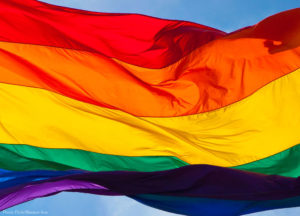
The easiest way to understand who you are is to divide your mind into two parts – the conscious and the unconscious.
The conscious mind is the cop, the judge, and the diplomat. The unconscious mind is the warehouse of all your memories, all your pent up rage, all your hurt, all your repressed desires.
The conscious mind determines what, how, and in what form the thoughts of the unconscious mind are allowed to seep out.
Sometimes energy from the unconscious mind builds up so powerfully, it overwhelms the ability of the conscious mind to govern.
Lately, that has started to happen to me. For example, there is this professor of psychiatry at Johns Hopkins School of Medicine, who consistently proclaims in his “research” that LGBT individuals are not born such, but choose to be so. That he (Paul McHugh) takes the position doesn’t bother me; it’s that he cherry picks his research to fit his religious outlook that drives me to despair. (ref. Advocate, Dean Hamer, NIH, August, 2016)
The school administration at JHU knows this, but has done little to reign him in. Hence, McHugh persists in writing for and speaking to groups who are anti-LGBT. In turn, these anti-LGBT groups produce videos, podcasts, articles using McHugh’s faulty research to reinforce their bias.
Some in this group are world renown religious leaders, e. g., Elder Dallin Oaks, who take this controversial research and preach and teach it to thousands upon thousands of loyal followers whose faulty assumptions about the LGBT community are reinforced.
Whether Oaks is fully aware of McHugh’s faulty research, I don’t know, but part of me thinks he should be. Oaks is one of the great and respected legal minds in America.
This is when my rise of unconscious angst boils over. McHugh and Oaks have every right to voice their opinions, whatever those opinions might be, but for men of this caliber, both of whom are the best of what medicine and law have produced, to create and share SUSPICIOUS research without voicing the study’s limits violates what we in America might consider the basic values of fair play.
LGBT individuals, especially teenagers, are a highly, HIGHLY vulnerable group, who are in need of our deepest understanding of the facts that surround them. Unfortunately, when I read studies like those authored by McHugh, I feel like the best of which we are capable is blindsided by our darker impulses which cause acute and devastating suffering for those who least deserve it.